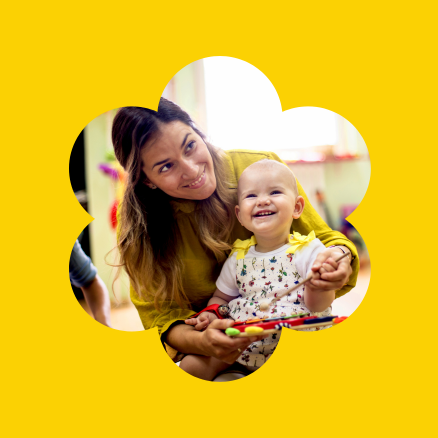Nailing Your Interview: Tips and Techniques
You've got your sights set on a dream job in the early childhood sector, and you’ve landed an interview - don't worry, we've got your back! Here are some tips and tricks to make a lasting impression at your interview. We’ve broken this article down into more general tips as well as some early childhood specific questions.
The more general tips
Research the company: Stand out from the crowd by familiarising yourself with the centre, get a general and broad lowdown of the services offered, culture and philosophy they adopt.
Understand the job:
Dig a little deeper for some role-specific info to get some insight into the context of the interview. Identify the key skills and quals needed for the role so you can tailor your responses accordingly. Craft some questions that showcase that you’re eager and you’ve done your homework.
Practice makes perfect: Anticipate the questions you might get asked and practice your responses. That way you can articulate your thoughts clearly and confidently in the interview.
First impressions count:
Remember, you've only got one shot at a first impression, so let's make it count. Arrive 10 mins early, dressed appropriately for the role. When you meet the interviewer, greet them politely, using the right title – it's the little things that add up and make a big impact.
Listening is key:
During the interview, stay composed, listen to the questions and answer them with confidence, directly and to the point. If you didn’t hear the question in full, don't hesitate to ask the interviewer to repeat the question. Oh and body language matters – sit up straight, maintain eye contact and let your confidence shine, even if the interview feels like it’s not going well.
Ask questions: When the spotlight's on you to ask questions, this is your moment to be a star. Ask smart, critical questions that show you’re interested in the centre and you’ve done your research. Always thank everyone for their time and exit like the superstar you are.
Be positive:
Be your confident, positive self during the interview - good energy can leave a lasting impression.
Some early childhood specific questions
Here are some common questions you may encounter during your interview and can prepare for ahead of time. Remember, this is your time to shine and share your expertise confidently.
How would you handle a crying child?
- What the interviewer’s after: They’re curious about your approach to observing and communicating with individual children. They want to know more about how you uncover why a child is crying. Maybe they’re angry at another child, hungry or just in need of some attention.
- How you can share: Your ability to understand the child’s needs and showcase problem-solving skills is key.
Talk to me about a current education issue
- What the interviewer’s after: The early childhood education field is always evolving. Your potential employer wants to gauge how well you stay informed about relevant issues as well as understand your teaching perspective.
- How you can share: There is no right or wrong answer; it’s about expressing your opinion. A smart move is to prepare by reading articles related to the age group you’ll be teaching, ensure you’re well versed in the pros and cons of different viewpoints.
What’s your opinion on technology in the classroom?
- What the interviewer’s after: Technology is everywhere. The interviewer is interested in how you incorporate it into your classroom for optimal outcomes and educational purposes.
- How you can share: For example, you might be using technology to encourage visual learning and imagination or maybe you’re using it for research-based experiences, they want to know how you’re using technology to enhance children’s learning more analytically.
Think of each interview as a stepping stone in your job hunt journey. It’s a learning experience so take the time afterward to reflect on how it went, pick up some lessons and lift your game plan for the next one.
Once the interview’s done, don't be a stranger. Reach out to Expect A Star and spill the beans on how it went, share any thoughts about the role or concerns you may have. We're here to support and guide you every step of the way. Let's make that dream job yours, good luck!
More Resources









